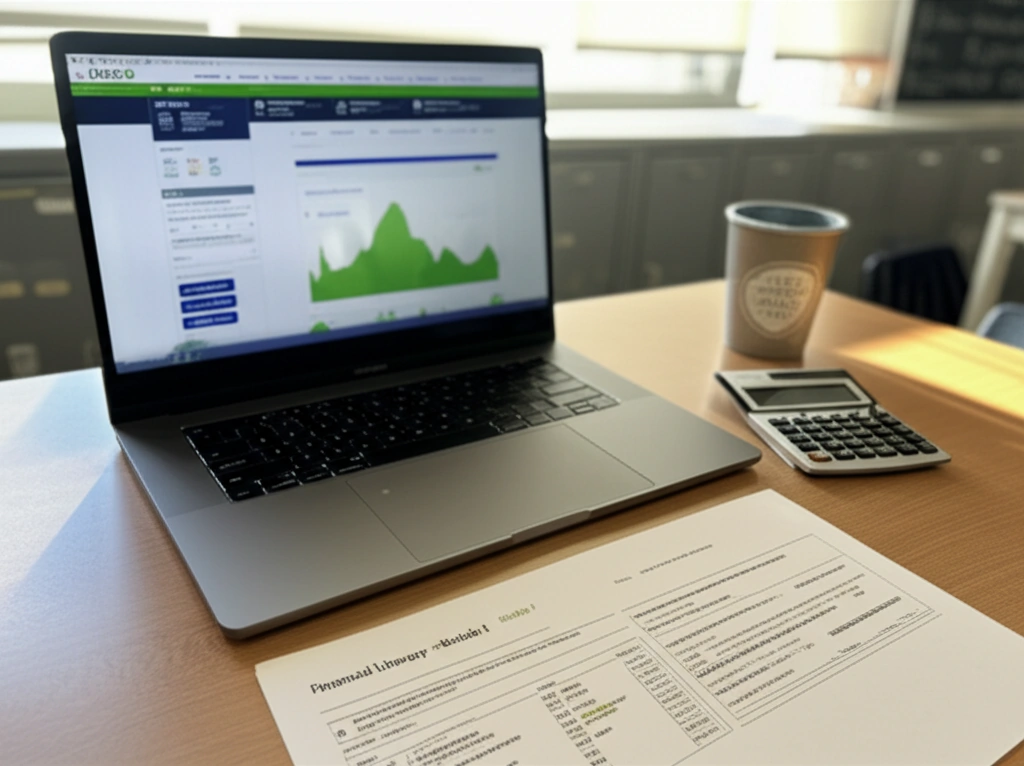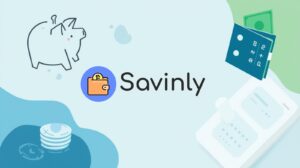Hey—so you’re here because you want real answers. Not the fluff, not the “just memorize this” stuff, but what you actually need to know about Everfi Financial Literacy for High School Answers Module 1, especially if you want to make sense of banking, savings, and, honestly, your own money for once.
I get it. Money can feel big, messy, and sometimes a little scary. But here’s a secret: once you get the basics down, a lot of that stress just melts away. It’s like riding a bike with training wheels—wobbly at first, but soon, you’re cruising. You’ll walk away from this post knowing what really matters in Module 1, how to ace those quiz questions, and—maybe most importantly—start to think differently about your money.
Yes, you’ll find direct answers to common Module 1 questions. Yes, you’ll understand why they matter. And yes, I’ll keep it conversational—no textbooks, no lecturing, just real talks about real money.
What’s Actually in Module 1?
Before we dive into the “how” and “why,” let’s map out the “what.” Everfi Financial Literacy for High School Module 1 is your crash course in banking basics. Think of it as your starter’s guide to not getting ripped off, not wasting money, and maybe even growing it a little. Major topics include:
- What financial institutions do (banks vs. credit unions vs. those sketchy check-cashing places).
- Types of accounts—checking, savings, CDs, money markets—and why you’d pick one over another.
- How interest works (the real magic behind saving).
- Budgeting basics and how to set yourself up for short-term wins.
- Safety tips—like not getting scammed at the ATM.
- What to do if your bank messes up.
- A quick intro to investing and credit cards (we’ll save the deep dive for later).
If you’re thinking, “That’s a lot!”—you’re right. But everything fits together like pieces of a puzzle. Once you get the big picture, the details start making sense.
Direct Answers to Common Module 1 Questions
Which Account Is Best for Everyday Spending?
Here’s the deal: for daily stuff—buying lunch, getting gas, grabbing a coffee—a checking account is your go-to. It’s designed for frequent deposits and withdrawals, usually comes with a debit card, and sometimes even offers a little interest, though usually not much. Savings accounts? Great for, well, saving. But if you want easy access to your cash, checking is your best friend.
Which Account Gives You the Least Access to Your Money?
That would be the Certificate of Deposit, or CD. Picture this: you promise your bank not to touch your money for a set time (six months, a year, or more), and in return, they pay you a bit more interest. Nice right? Except there’s a catch: try to withdraw early, and you’ll get hit with a penalty. So CDs are for money you know you won’t need anytime soon. Need the cash now? Stick with a regular savings or checking account.
How Does Interest Really Work?
Let’s say you stashed $100 in an account that earns 5% interest. After a year, you’d have $105, right? Well, yes—but only if it’s simple interest. With compound interest, things get interesting. Imagine earning interest on your interest. Over time, that adds up—especially if your account compounds interest daily, rather than monthly or yearly. So, the more often it compounds, the more you earn. Want to max it out? Look for “daily compounding.”
What’s the Purpose of a Budget?
A budget is your plan for every dollar you have. It’s not about punishing yourself for spending—it’s about making sure your money goes where you want it to go. If you’ve ever wondered, “How can a budget help you reach your financial goals?”—this is how. When you know exactly what’s coming in and going out, you’re in control. You can save for big stuff (that trip, those concert tickets, maybe even your first car), pay bills, and still have some left over for fun. Need more? There’s a whole section on everfi financial literacy for high school budgeting answers.
Which Banks or Services Charge the Highest Fees?
Brace yourself: check-cashing and payday loan companies are the fee monsters. They’re fast, sure, but you’ll pay for that speed—sometimes a huge chunk of your paycheck. Banks and credit unions? Not always perfect, but usually much cheaper, especially for everyday services. Pro tip: always read the fine print.
What’s NOT a Common Feature of a Bank?
Here’s a curveball: unless you’re at a full-service bank, things like personalized investment advice or investment trading aren’t always included. Banks mostly focus on checking, savings, and loans. Want to trade stocks or get financial planning? That’s usually a different department, sometimes even a different company altogether.
Real-World Examples—Because Theory Can Be Boring
Let’s make this personal. Say your friend Tamara has $500 she’s saving for a class trip in a year. She wants the most interest possible and won’t need the money until then. What should she do? A CD is perfect—she locks in a better rate and can’t touch the money until the time’s up. No temptation, more cash.
Or imagine you get $100 every month from your folks. You want to save half, spend a quarter, and maybe treat yourself with the rest. That’s budgeting in action—and it’s a habit you can use for life. Once you start, you realize how much is possible, even with small amounts.
Why Does This All Matter—For Real?
You might be thinking, “Why should I care? I’m just in high school.” Here’s the truth: the habits you build now—saving, budgeting, avoiding scams—set you up for a lifetime of better choices. According to official curriculum pages, most high schoolers don’t feel confident comparing banks, managing accounts, or setting budgets. That’s a big deal, because the decisions you make in the next couple years can ripple through your entire life.
How to Practice—Flashcards, Quizzes, and More
Practice makes permanent. For tough concepts, flashcards rock (shoutout to smart money habits everfi quizlet—seriously, check it out if you want a quick review). Quizzes help, too. The more you test yourself, the more confident you’ll feel. But remember—just copying answers doesn’t help you in the long run. Use these tools to train your brain, not just pass a test.
A Few Friendly Warnings
Let’s be real: there are a ton of “answer keys” out there. Some are helpful, others… not so much. Misinformation is everywhere. If you see an answer that doesn’t make sense, double-check it. Google’s Helpful Content System rewards sites that share genuine, trustworthy info—so always look for content backed by real experience, not just random internet guesses.
Quick Reference Table: Savings Accounts Compared
| Account Type | Best For | Access to Funds | Interest Earned |
|---|---|---|---|
| Checking | Daily spending, bills | Anytime | Usually very low or none |
| Savings | Building emergency fund | Limited withdrawals | Low to moderate |
| CD | Saving for a known goal | Not until term ends | Higher (if left untouched) |
| Money Market | Higher interest savings | Limited withdrawals | Moderate |
Troubleshooting: When Stuff Goes Wrong
Sometimes, the bank will mess up. Your balance might show the wrong amount, or a deposit doesn’t show up. What do you do? Don’t panic. Keep your receipts, double-check online banking, and call your bank. Mistakes happen, but catching them early keeps you safe.
How to Make This Stick (and Actually Use It)
Here’s my challenge for you: Try one thing. Maybe open a savings account (many banks let minors have accounts with a parent or guardian). Maybe track your spending for a month—not to judge, just to notice. Maybe talk to your parents about how they manage their money. Every little step counts. If you get stuck, come back and re-read. Or, you know, ask a question—there’s no judgment here.
You’re Ready—Let’s Go
So, that’s your crash course in Everfi Financial Literacy for High School Answers Module 1. You’ve got the basics, the answers, and a plan to keep growing. Remember: you don’t have to be perfect. Just start. The money world is complicated, but you don’t have to be an expert overnight.
If you found something confusing, or if there’s a topic you want to dive deeper into—like credit cards, investing, or how to start a business, let us know! And hey, if you have a funny or frustrating money story, I bet the rest of us can relate. Share your thoughts—what was your biggest “aha” moment about money?
At the end of the day, the goal is simple: help you feel in control, confident, and maybe even a little excited about your financial future. You’ve got this.
What’s next for you after reading this? If you’re curious about how smart money habits could change your daily life, take a look at smart money habits everfi quizlet for some quick, actionable tips. Or, if budgeting still feels like a puzzle, check out everfi financial literacy for high school budgeting answers for more on making your money work for you.








